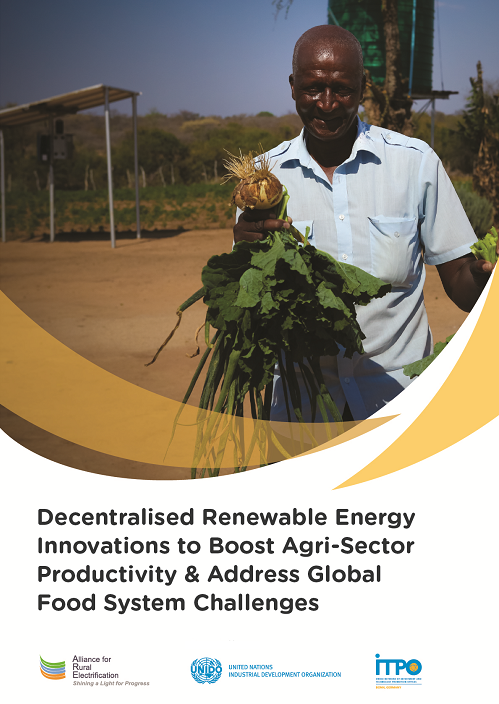Decentralised Renewable Energy Innovations to Boost Agri-Sector Productivity & Address Global Food System Challenges
Zero hunger can be achieved by providing energy beneficiaries with the means to produce, transform and consume food in a clean and sustainable way, thereby enhancing both their food security and nutrition.
Agriculture is a source of livelihood for 86% of people living in rural areas globally. Besides farming, livelihoods can encompass various activities in other key agricultural sub-sectors, including livestock and fishing and aquaculture.
The Organisation for Economic Co-operation and Development (OECD) highlights three major challenges faced by the global food system:
- Feeding a growing population
- Providing a livelihood for farmers
- Environmental protection
There is a strong need for increased adoption of sustainable agricultural practices to bring the food from farm to fork while addressing the above three challenges. This is where decentralised renewable energy (DRE) technologies can and must play a key role. Moreover, as innovation in DRE-powered agricultural equipment and appliances steam ahead, their technical and commercial viability will improve further.
Based on best practices from the 15 case studies included in this publication and general observations, ARE and UNIDO ITPO Germany developed recommendations for public and private stakeholders working in the field to boost DRE uptake to power agricultural productivity.
WATCH THE VIDEO: ARE & ITPO Germany – Energy and Agriculture Campaign

